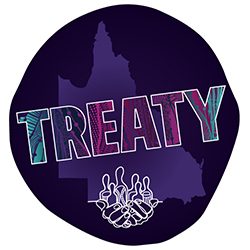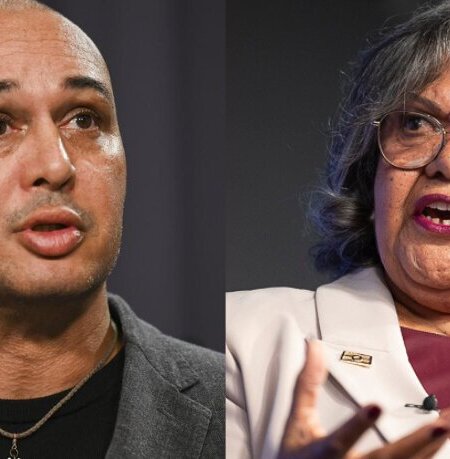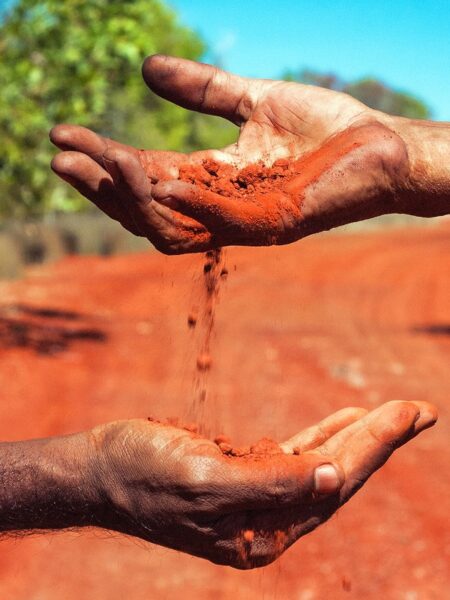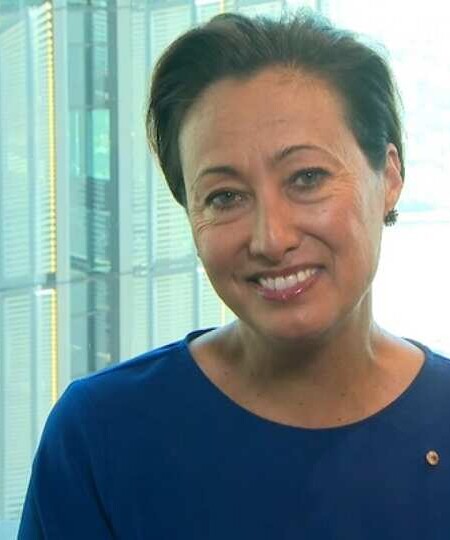With the upcoming election in Queensland, ANTaR is looking at the tentative steps made towards treaty so far in that State and the pathway forward.
Tracks to Treaty
In July 2019, the Queensland government established Tracks to Treaty – an initiative aimed at reframing the relationship with Aboriginal and Torres Strait Islander Queenslanders. As part of that initiative, an Eminent Panel was established to advise on the Path to Treaty process. Led by Bidjara-Pitjara, Birri Gubba and Juru woman, Dr Jackie Huggins and former Keating government Minister Michael Lavarch – the Panel was comprised of high profile Aboriginal and Torres Strait Islander and non-Indigenous Queenslanders and supported by a Treaty Working Group.
Following a consultation process involving 24 face-to-face community sessions, 331 online surveys and 38 written submissions, the Eminent Panel provided advice and recommendations to the Queensland government in February and May 2020, with the primary recommendation being that the QLD government proceed on a Path to Treaty or treaties with the First Nations of Queensland.
Furthermore, the Eminent Panel proposed that the government express its intention to further lasting reconciliation with First Nations through actions including:
- The establishment of the First Nations Treaty Institute as an independent body to lead the Path to Treaty process;
- The facilitation of a process of truth telling and healing;
- The building of capacity for First Nations to actively participate in the treaty process;
- Deepening the understanding and engagement of the wider Queensland community in the Path to Treaty;
- The adequate resourcing of these actions through the establishment of a First Nations Treaty Future Fund and;
- The placing before Parliament a Bill to further the Path to Treaty, establish the First Nations Treaty Institute and the First Nations Treaty Future Fund.
Second only to the ground-breaking treaty process currently underway in Victoria, the QLD Path to Treaty, if implemented as proposed by the Eminent Panel, would be a game changer for the Aboriginal and Torres Strait Islander peoples of Queensland.
Building on the steps suggested above, the central features of the Path to Treaty process envisaged by the Panel include:
Truth Telling
- to chronicle the history of First Nations Peoples prior to British colonisation of QLD, the history and impact of colonisation and the more recent history of the First Nations Peoples.
Capacity Building
- to support First Nations peoples to engage in the treaty making process and negotiations with the State on an equitable basis; to be treaty ready and develop governance models appropriate for different communities.
Community Understanding and Engagement
- through the establishment of a program to promote understanding of the history of First Nations Peoples and the Path to Treaty process.
Recognition
- via Path to Treaty legislation which includes an acknowledgment that covers their prior 65,000 years of ownership, the impacts of colonization, that sovereignty of Queensland’s First Nations peoples have never been ceded, the central importance of their culture and knowledge and the good faith commitment to treaty as an expression of a new partnership.
Finally, the Panel recommended that the Uluru Statement from the Heart should inform the Path to Treaty. In relation to the importance of Treaty for the next generations, Jackie Huggins stated that:
It is your responsibility to carry on the legacy and do your very best to fight the injustice, and I think that’s certainly handed down to younger people… We will always have a job to do in Aboriginal affairs for the rest of our lives because there is still so much unfinished business to take care of.
The work of Jackie Huggins and the Eminent Panel offers a way to address some of that unfinished business in QLD over the coming years.
The Queensland government’s response
In August 2020, the Palaszczuk Labor government released its response to the recommendations of the Eminent Panel report and accepted either fully, or in-principle, each of the Eminent Panel’s recommendations.
The Government affirmed its commitment to the treaty-making process and its intent to explore options to establish an independent, legislated body to lead the Path to Treaty process.
Importantly, the Government has committed to engage with all Queenslanders to increase understanding of the need for truth-telling and raise awareness of Queensland’s shared history and the diversity of perspectives.
Ambitious and probably unimaginable 30 years ago, the Path to Treaty process, or some form of it, is now a real prospect for Queensland at some point in the future.
What’s Next for Treaty in Queensland Post-Election?
With the election in Queensland on 31 October, momentum for the Path to Treaty will largely depend on the continued commitment of whoever forms government for the next four years.
Premier Palaszczuk has reiterated her party’s commitment to the Treaty process should they win re-election on Saturday, stating that a Treaty Advancement Committee ‘will ensure Queensland is well placed to consider the next steps in the journey to a treaty with First Nations Queenslanders.’
The Liberal National Party’s position on the Path to Treaty process is unclear. However, Christian Rowan, Shadow Minister for Aboriginal and Torres Strait Islander Partnerships, has previously stated that the State Government was failing Queensland’s First Nations communities. With a clear roadmap towards lasting change laid out, it would be a highly disappointing setback for those communities should a LNP government retreat from that path.
Ghungalu man, former Social Justice Commissioner and Eminent Panel Member and Treaty Working Group Co-Chair, Mick Gooda rightly notes that:
There’s this whole unfinished business in Australia where we’re sitting here, and it goes to how this place was colonised and settled and occupied… It’s never been done, and there’s a feeling that we get, that this treaty could actually establish that – it could tell the truth.
It is essential that whomever forms government after next weekend, Queensland continues along the Path to Treaty and takes the next meaningful step towards truth, addressing the wrongs of the past and setting all Queenslanders up on the road to reconciliation based on a just settlement.




